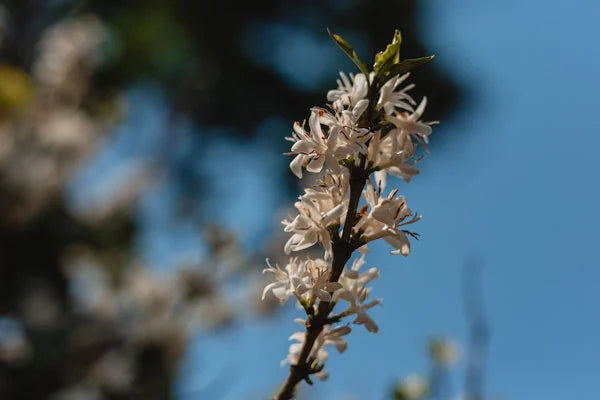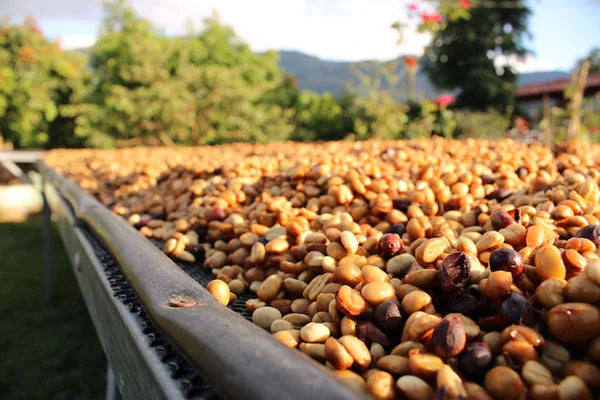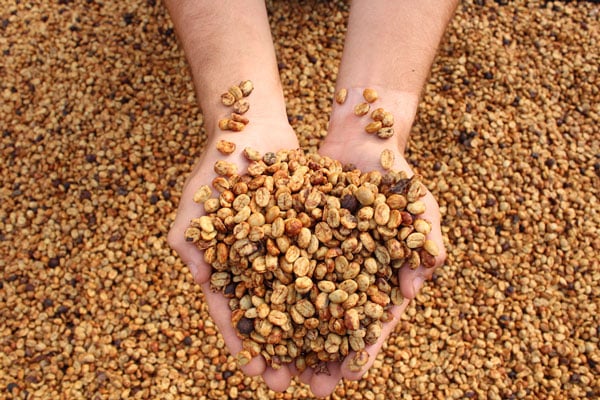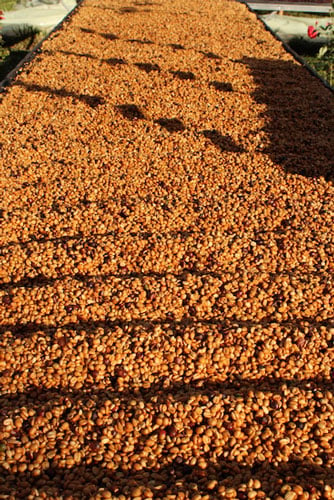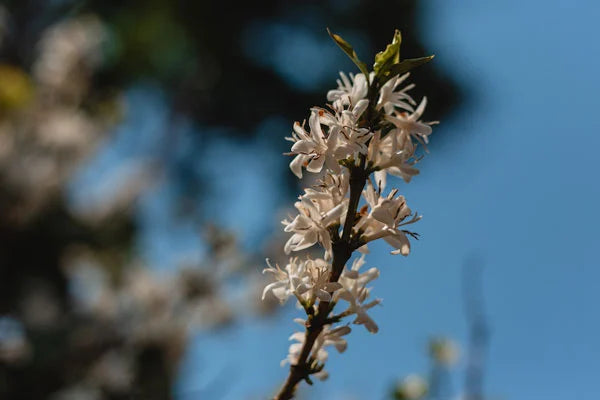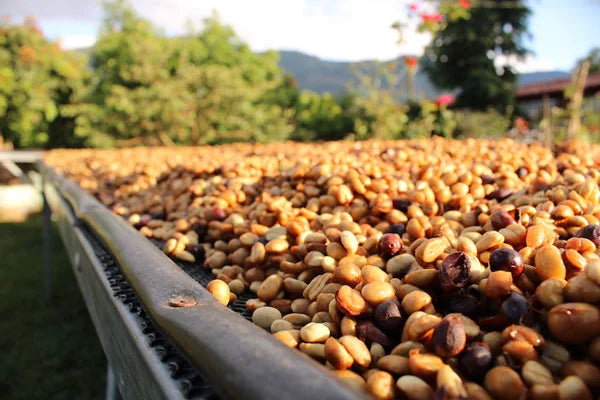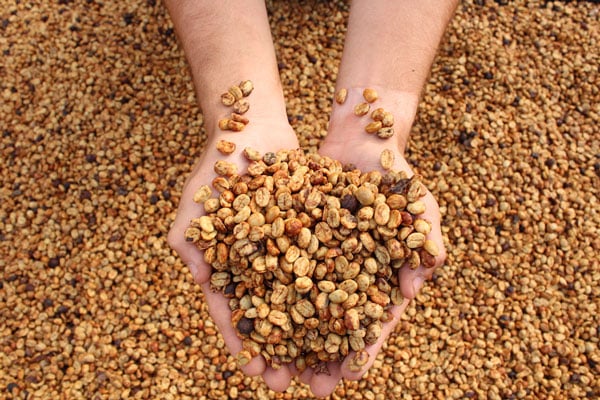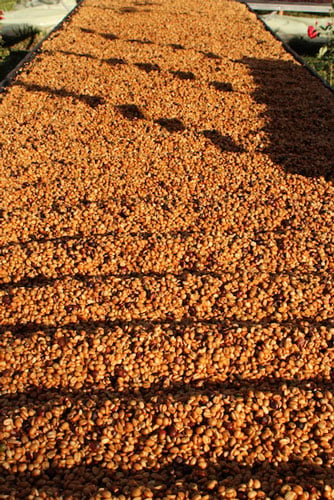At Almalahi, around twenty-three farmers cultivate coffee as the village's primary income source. Coffee is cultivated on agricultural terraces at altitudes from 1700 to 2100 meters above sea level. The exact history of coffee cultivation in the village of Almalahi is unknown, but the cultivation of coffee in areas of Yemen has been documented for at least 400 years, and the farmers cultivate and harvest coffee in the same traditional way since no modern machines for cultivation, irrigation or harvesting have reached the village. Traditionally farmers in Yemen work on small plots from 60–70 trees to 400–500 trees. Each producer's delivery is recorded at the time of delivery to the processing station, and the farmer receives a price based on the quantity of coffee delivered, its moisture content at the time of delivery, and its density.
For this coffee, the Anaerobic Natural process was achieved through bag fermentation. After the coffee cherries were picked, they were washed and placed in Ecotact bags for 72 hours, maintaining a PH level of 3.6. Then the cherries were placed on raised beds (15kgs on each bed at a time) and left to dry between 14 to 20 days.
ORIGIN
Al Milah District, Yemen
It's believed mainly that coffee beans were originally exported from Ethiopia to Yemen. Later, Yemeni traders brought coffee plants back to their homeland and began to grow them there, though they originated in Ethiopia. In Yemen, these plants were finally cultivated and developed into the beans and beverages we know today.
Yemen prospered as coffee made its way around the world; by the early 1700s, virtually the entire country's income came from coffee exports, and the whole world's coffee supply came from Yemen. As a result of this boom, much of Yemen's farming population moved to growing coffee in the 17th and 18th centuries.
Yemen coffee is of superb quality due to its traditional, natural farming techniques that date back over 500 years. Premium Yemen coffee beans are considered by many to be among the best on the global market.



